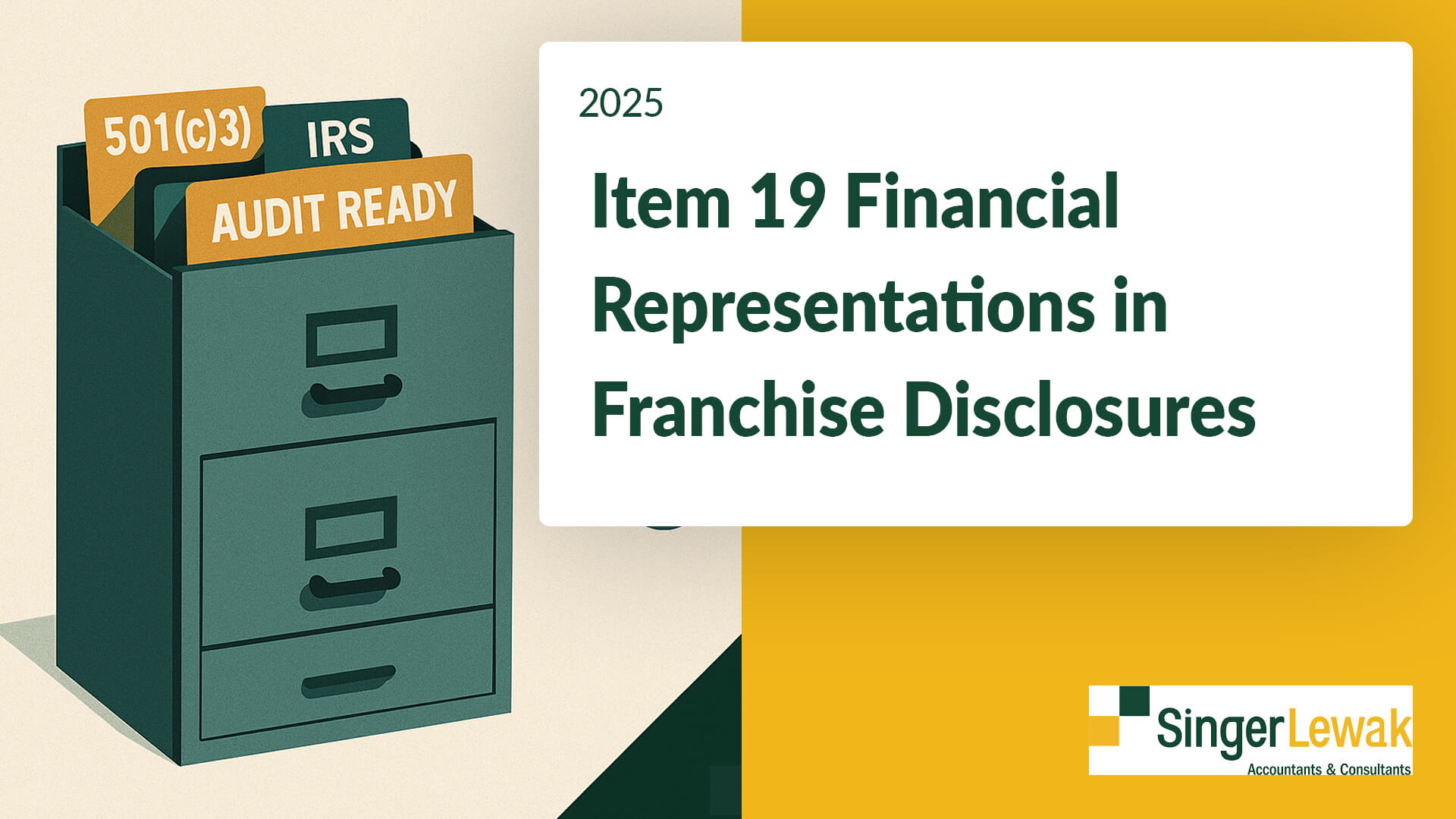Item 19 financial representations in franchising are crucial for helping prospective franchisees make informed investment decisions. Here’s why they matter—and how franchisors should present them.
Why Item 19 Matters
-
Increases Franchise Sales & Conversions
Sharing a track record of financial success builds trust and speeds up the decision-making process for potential franchisees. -
Supports Informed Decision-Making
Franchisees need insights into expected revenue, costs, and profitability before investing. -
Creates a Competitive Advantage
Franchisors who disclose strong, transparent data stand out and attract more serious candidates. -
Reduces Legal Risks
Without Item 19, franchisors legally can’t discuss financial performance with prospects. A clear disclosure protects both parties from misrepresentation or disputes. -
Builds Transparency & Trust
Financial transparency leads to better-prepared franchisees and improved system performance overall.
How to Present Item 19
-
Use Clear, Accurate, and Consistent Data
The numbers must align with actual franchise operations. -
Disclose the Data Source
Clarify if the numbers come from franchise units, company-owned locations, or a mix. -
Include Key Financial Metrics
Focus on revenue, gross profit, cost of goods sold, labor, occupancy, SG&A, and EBITDA—don’t overcomplicate. -
Add Context
Note sample size, timeframes, and locations to provide a full picture. -
Use Footnotes
Explain variations in performance due to rent differences, natural disasters, or store models. -
Avoid Misleading Data
Do not overstate earnings potential or omit risks. -
Stay FTC & State Compliant
Ensure your disclosure meets all federal and state legal requirements.



